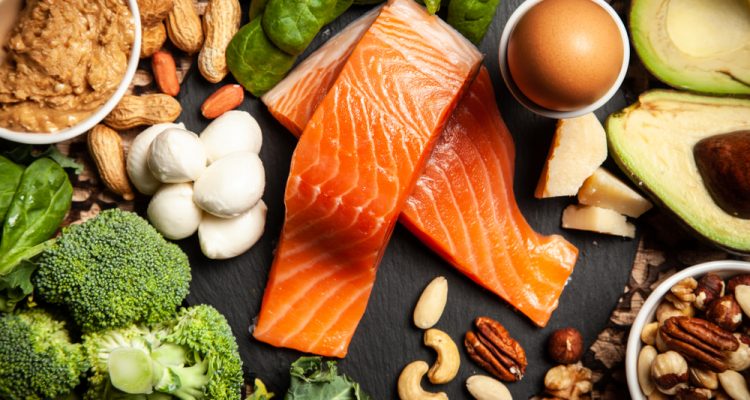Diet affects the state of your overall health – and that includes your oral health. According to the American Dental Association (ADA), your oral health is one of the first areas that is affected by a poor diet. Let’s take a closer look at how your diet is linked to teeth and gum health.
Foods That Contribute to Tooth Decay
Maintaining a healthy diet for good oral health isn’t all about what you’re putting on your plate – it’s also about what you’re taking off. Eating a diet that’s high in simple sugars and starches – from processed and refined foods – leads to dental cavities and tooth decay. The bad bacteria in your mouth feed on the sugars in food and produce acid that eats away at protective tooth enamel over time.
Limit your intake of the following:
- Refined starches like white bread and white pasta
- Processed sweets like cookies, candies, and ice cream
- Processed snacks like chips and crackers
- Sugary foods that linger in your mouth, like hard candies, mints, and lollipops
- Chewy, sticky foods like dried fruits and caramels
- Sugary drinks like soda and juices
Nutrients Your Mouth Needs to Stay Healthy
Your mouth needs a variety of vitamins, minerals, and nutrients for good oral health. Eating a well-balanced diet of fruits, vegetables, lean protein, dairy, complex carbohydrates, and healthy fats will ensure that you receive these nutrients without having to use supplements.
While this is not an all-inclusive list, here are a few key nutrients you need to keep your teeth and gums healthy. All of these nutrients can be incorporated into a fresh, whole-food diet.
- Phosphorus
- Fiber
- Omega-3 fatty acids
- Calcium
- Vitamin C
- Polyphenols
Foods That Keep Your Teeth and Gums Strong
Apples – apples are high in fiber, which means they require a lot of chewing to break down. Chewing increases saliva flow to your mouth. Saliva contains enzymes that help break down food particles, neutralize acids in your mouth, and strengthen enamel. Saliva also washes away food particles and prevents them from getting trapped in your teeth. As a bonus, the rough texture of an apple gives your teeth a good scrub while you eat it.
Carrots are another good crunchy, tooth-scrubbing food.
Aged cheeses – aged cheeses like cheddar and swiss help balance the pH level in your mouth by neutralizing acids. It’s a good idea to pair cheese with a sweet snack, because the cheese will counterbalance that acids released when you eat sugar. Cheese is also high in calcium, which keeps your teeth strong.
Yogurt and milk are other good sources of calcium.
Leafy greens – leafy greens like kale, collards, and Swiss chard are chock full of vitamins, minerals, fiber, and calcium. They’re a great source of Vitamin C, an antioxidative vitamin that increases production of red blood cells. Vitamin C also has anti-inflammatory properties, which helps keep your gums healthy.
Bell peppers, citrus fruits, strawberries, and kiwi are also full of Vitamin C.
Eggs – Eggs are a good source of protein, folic acid, and phosphorus. Phosphorus is a mineral that helps strengthen tooth enamel.
Phosphorus can also be found in pumpkin seeds, red meats, tofu, fish, and broth.
Berries – berries are a superfood rich in antioxidants, fiber, and polyphenols. Polyphenols are protective phytochemicals found in plant-based foods. Polyphenols have anti-inflammatory and anticarcinogenic effects, and they may slow bacteria growth and reduce your risk for oral cancer.
Cocoa, tea, plums, cherries, and eggplant are excellent sources of polyphenols.
Cucumbers – cucumbers have a high water volume, which makes them low in sugars and acidity. They also contain vitamins and minerals.
Celery, pears, and melon are more good choices for high water volume foods.
Salmon – salmon is high in omega-3 fatty acids, which have anti-inflammatory properties to protect your gums from gum disease.
Walnuts and chia seeds are foods rich in inflammation-fighting omega-3 fatty acids.
Dietary Tips for Good Oral Health
Finally, here are some tips on how you can structure your diet to keep your teeth and gums strong and healthy.
- Limit snacking. Every time you snack, you release more sugars that bacteria in your mouth feed on to produce acid. Continuous snacking and sipping sugary drinks throughout the day increases the amount of time your teeth are being attacked by acid. The longer your mouth remains in an acidic state, the faster enamel will wear down.
- Eat sugary foods with meals. Have your dessert right after you finish your meal. Your mouth has increased saliva flow from the time spent chewing your food, and more saliva will help wash away food particles from sweet, sugary foods.
- Chew gum. Chewing sugar-free gum will increase saliva flow to clean your mouth and wash away trapped food particles.
- Brush and floss. Bush and floss your teeth after eating. Food particles that linger on your teeth and in crevices slowly wear away at enamel and cause tooth decay. If you can’t brush and floss, then rinse your mouth out with water.
Along with a healthy diet, regular dental exams are a necessary part of maintaining good oral health. If it’s time for your next check-up, contact Boyett Family Dentistry today to schedule an appointment.






